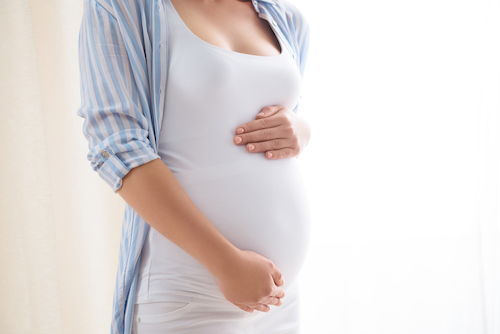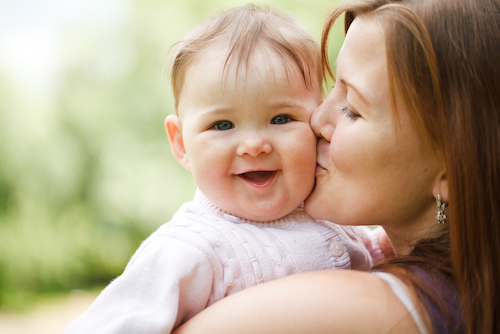The number of babies born to expats in Luxembourg has doubled in recent years and with its high standard of healthcare, you should experience few problems if you are expecting a baby in the country.If you are registered under the national health insurance scheme, the Caisse Nationale de Santé (CNS), then you will be covered for your pre-natal care, labour and post-natal care. However, you still might have to pay for some additional extras; and if you want to give birth at home, you will need to take out private health insurance since the CNS will not cover this.
How to decide on a birth plan
A birth plan is a list of what you would like to have happen in labour and beyond, written so that your doctor know what your wishes and expectations might be. Options include:
• where do you want to give birth?
• who do you want to have with you (e.g. your partner)?
• what kind of birth do you want (e.g. vaginal birth or a Caesarian)
• do you need any birthing aids?
• do you want pain relief, and if so, what kind?
• what kind of birthing environment would you prefer?
Luxembourg passed legislation in 2014 entitling you to the right to an informed decision when it comes to your pregnancy and the birth of your baby. You have a number of choices regarding labour, for example, and can write this into the birth plan. Having a birth plan is usual in Luxembourg although it’s a good idea to get it translated into French or German depending on your region of residence.
Luxembourgish maternity care
The CNS will cover your maternity care, estimated to be in the region of €7,780 per patient. You will need to let your employer know as soon as you know that you are pregnant, via a registered letter (lettre recommandée).

Your main points of contact will be your doctor and your gynaecologist. Your doctor will offer you three ultrasound scans under the national insurance scheme, but you can request more if you wish. Your doctor will also make appointments for other medical checks such as blood tests, and you will receive regular check-ups throughout the course of your pregnancy. You will have meetings with a midwife in the 5th and 7th month and, closer towards the birth, a meeting with an anesthetist to discuss any pain relief in your birth plan.
Most women in Luxembourg give birth in a birth house or hospital. Home birthing is permitted but not usual, and it is not covered under the national health insurance scheme.
If you choose to give birth in hospital, you have four maternity units to choose from. Check with your doctor if they tend to make referrals to a specific hospital. All delivery nurses in Luxembourg are also trained midwives. Don’t forget to take your healthcare card and any other insurance or medical documentation with you, as well as toiletries, night wear and towels. Your partner should be allowed to be with you at the birth but check with the maternity unit first as to their policy.

You are likely to be in hospital for 3-4 days, but this will depend on the nature of your delivery. If you have had a Caesarean, you may be kept in for up to a week. Your baby will be checked by a pediatrician within 48 hours.
Once you have left the hospital, your midwife will continue to visit in order to check on the baby’s progress. You can consult with your GP regarding the vaccination regime: Luxembourg insists on a wide range of vaccinations for children and you will be given a timetable.
At a birth house, you will be given access to a number of facilities like water birthing pools, and you can have your family with you. The CNS may cover this on a case by case basis, but European Health Assurance also covers care in these institutions and if you have private health insurance, your provider may do so also: you will need to discuss your birth plans with them as prior approval may be required.

After the birth, you will need to register the child’s name at the Office de l’Etat Civil. You will need to take a copy of the birth certificate (avis de naissance) with you, as well as your marriage certificate, if you have one, and your ID card.
If you are a working mother, you will be eligible for maternity leave (allocation de maternité) eight weeks before and twelve weeks after birth: this will be payable through the CNS if you are registered with it and have made six months of national security contributions in the year before the birth.
You must alert the CNS within your last 12 weeks of pregnancy and supply them with an estimated due date in order to qualify for maternity leave. You and your partner will both be entitled to six months’ parental leave plus a monthly allowance, but not at the same time: this is payable from the Family Allowances Fund Office and you will need to contact them to work out the precise terms of your leave period.
You will also be entitled to maternity benefits but must have a number of medical check ups and one dental check in order to be eligible. This will consist of a payment equivalent to the highest salary received during the last three months prior to your maternity leave, and you may get some further benefits as well: you can check your entitlement with the CNS or via the government website. The government website says that the payment is currently €1,740.09, paid in three instalments (prenatal, maternity and post-natal) of €580.03. Your gynaecologist should give you an application form for maternity benefits.
Will my baby be a Luxembourgish citizen?
Your child will only have Luxembourgish citizenship if one of its parents is a citizen of the country.
Would you like to share your experience of life abroad with other readers? Answer the questions here to be featured in an interview!

